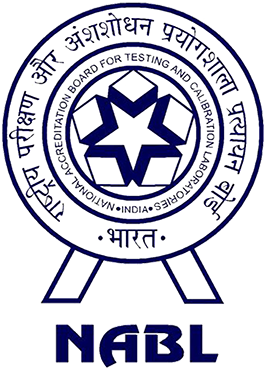C- Peptide — Fasting
C-peptide fasting is a blood test that measures the level of C-peptide in the bloodstream after an overnight fast. C-peptide is a protein produced in equal amounts with insulin during the cleavage of proinsulin into insulin. This test helps assess the body's ability to produce insulin naturally. It is used to distinguish between type 1 and type 2 diabetes, as C-peptide levels are typically low in type 1 diabetes (indicating little to no insulin production) and may be normal or elevated in type 2 diabetes (indicating insulin resistance or preserved insulin production).
C-peptide fasting test measures the level of C-peptide in the bloodstream after an overnight fast, typically for 8-12 hours. C-peptide is a protein that is produced in equal amounts with insulin when proinsulin is cleaved into insulin in the pancreas. This test provides valuable information about insulin production by the pancreas, helping to distinguish between different types of diabetes and assess overall pancreatic function.
### Purpose and Clinical Significance:
The C-peptide fasting test serves several important purposes:
- **Differentiating Diabetes Types:** It helps distinguish between type 1 diabetes and type 2 diabetes. In type 1 diabetes, where the pancreas produces little to no insulin due to autoimmune destruction of insulin-producing beta cells, C-peptide levels are typically low. In contrast, in type 2 diabetes, C-peptide levels can vary but are often normal or elevated, indicating insulin resistance or preserved beta cell function.
- **Assessing Pancreatic Function:** The test evaluates the ability of the pancreas to produce insulin in response to glucose levels in the bloodstream. This is crucial for determining the appropriate treatment and management of diabetes.
- **Monitoring Insulin Therapy:** For individuals with diabetes who are on insulin therapy, C-peptide levels can help assess endogenous insulin production alongside exogenous insulin intake.
### Procedure:
1. **Preparation:** The individual fasts overnight to ensure baseline measurements without interference from recent food intake.
2. **Blood Sample Collection:** A healthcare professional collects a blood sample, typically from a vein in the arm.
3. **Laboratory Analysis:** The blood sample is analyzed in a laboratory to measure the concentration of C-peptide present.
### Interpretation:
- **Normal Range:** Normal fasting C-peptide levels can vary but are generally between 0.5 to 3.0 nanograms per milliliter (ng/mL), depending on the laboratory's reference range.
- **Abnormal Results:** Abnormally low C-peptide levels may indicate type 1 diabetes or severe insulin deficiency. Elevated levels may suggest insulin resistance, conditions like type 2 diabetes, or the presence of insulinomas (insulin-producing tumors of the pancreas).
### Considerations:
- **Clinical Context:** Results should be interpreted in conjunction with other clinical and laboratory findings, such as glucose levels, insulin levels, medical history, and symptoms.
- **Complementary Tests:** C-peptide fasting testing is often used alongside other tests, such as insulin fasting levels, glucose tolerance tests, or imaging studies of the pancreas, to provide a comprehensive assessment of pancreatic function and diabetes management.
In conclusion, C-peptide fasting testing plays a crucial role in diagnosing and managing diabetes by assessing pancreatic function and distinguishing between type 1 and type 2 diabetes. It provides valuable insights that guide treatment decisions and help optimize diabetes care for better health outcomes.
We provide blood tests in Noida, Gurgaon,
Faridabad,
Delhi,
Indirapuram, Ghaziabad, Greater Noida, and Greater Noida Extension(west).
















